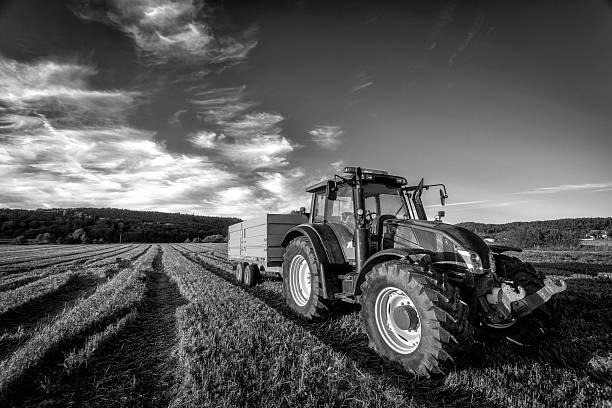Start Date
year-round
(course and enrollment takes place all year long)
Location
Lisbon Campus
Estoril Campus
or Online
Duration
2 Year
Full Time or Part Time, Higher Education
Accommodation
Place where students can reside while attending the university
€ 3.500/ year
Internship
The intern will receive payment for their work during one month period
Fees
Enrolment fee
€500
- The annual tuition fee is set at €4680.
- This can be settled in 8 installments.
- For every assignment, there is a charge of €80.
Please note:
Each HNC and HND course requires a total of 8 assignments to be completed annually.
1. Real-World Relevance:
Our HND in Agriculture is specifically designed to provide students with the knowledge and skills that directly translate into real-world applications. We understand that agriculture is an industry driven by practical expertise, and our curriculum is tailored to equip students with the necessary tools to excel in their careers from day one.
2. Hands-On Learning:
Unlike many traditional academic programs, our HND places a strong emphasis on practical learning. Students actively engage in various agricultural activities, including farm management, crop production, livestock handling, and machinery operation. This hands-on approach allows students to grasp concepts more effectively, ensuring they are well-prepared for the challenges of the industry.
3. Industry-Experienced Faculty:
Our faculty members are experts with extensive experience in the agriculture sector. They bring their wealth of knowledge and practical insights to the classroom, offering valuable guidance and mentorship to our students. Learning from professionals who have faced real-world challenges in agriculture further enhances the quality of education our students receive.
4. Work Placement Opportunities:
In addition to the practical training within the college, we offer our students the opportunity to participate in work placements with reputed agricultural enterprises. These placements provide invaluable industry exposure and networking opportunities, positioning our graduates for success in the job market.
5. Flexibility and Progression:
The HND in Agriculture offers a flexible study structure, accommodating both full-time and part-time students. Upon successful completion of the HND, students can progress to higher levels of education, such as a bachelor's degree in agriculture or related fields.
6. Growing Demand for Skilled Professionals:
Agriculture remains a vital industry, and there is a growing demand for skilled professionals who can contribute to sustainable farming practices and food security. By enrolling in our HND program, students position themselves at the forefront of this critical sector.


Key topics we cover:
1. Crop Production:**
Understanding different crop varieties and their cultivation techniques.
Soil preparation, planting, and crop maintenance.
Integrated pest management and disease control.
Sustainable agricultural practices and conservation methods.
2. Livestock Management:**
Principles of livestock breeding and genetics.
Animal nutrition and feeding strategies.
Livestock health and disease prevention.
Animal welfare and ethical considerations.
3. Agricultural Machinery and Technology:**
Operation and maintenance of modern agricultural machinery and equipment.
Precision farming and the use of technology in agriculture.
Farm automation and data-driven decision making.
4. Farm Management:**
Planning and budgeting for agricultural enterprises.
Risk assessment and management in agriculture.
Farm record-keeping and financial analysis.
5. Horticulture and Floriculture:**
Cultivation of fruits, vegetables, and ornamental plants.
Greenhouse management and controlled-environment agriculture.
Landscaping and garden design.

Key topics we cover:
6. Agribusiness and Marketing:**
Understanding agricultural markets and value chains.
Marketing strategies for agricultural products.
Entrepreneurship and business planning in agriculture.
7. Environmental Sustainability:**
Sustainable agriculture practices to promote environmental conservation.
Water resource management and irrigation techniques.
Biodiversity conservation and ecosystem preservation.
8. Agricultural Policy and Regulations:**
Government policies and regulations affecting the agricultural industry.
Agricultural subsidies and incentives.
Compliance with environmental and safety standards.
9. Research and Innovation in Agriculture:**
Scientific research methodologies in agriculture.
Application of biotechnology and genetic engineering in agriculture.
Emerging trends and innovations in the agricultural sector.
10. Work Health and Safety:**
Safety protocols and best practices on the farm.
Risk assessment and hazard identification.
Promoting a safe working environment.

Practical skills
1. Crop Cultivation:**
Students will gain hands-on experience in planting, cultivating, and managing different types of crops. They will learn about soil preparation, seed selection, crop rotation, and proper irrigation techniques to maximize yield and ensure crop health.
2. Livestock Handling:**
Our program includes practical training in livestock handling and management. Students will learn how to care for various types of animals, ensuring their well-being, health, and productivity. They will also acquire skills in livestock breeding and genetics.
3. Machinery Operation:**
Students will be trained in the operation and maintenance of agricultural machinery and equipment. This includes tractors, harvesters, irrigation systems, and other modern technologies used in farming practices.
4. Pest and Disease Control:**
Practical skills in pest and disease identification and control methods will be taught to ensure that students can effectively manage crop health and minimize damage caused by pests and diseases.
5. Greenhouse Management:**
Students will have hands-on experience in managing greenhouse environments, including temperature and humidity control, pest management, and optimizing conditions for plant growth.
6. Agricultural Practices:**
Through practical exercises, students will learn about sustainable agricultural practices such as organic farming, permaculture, and conservation agriculture. These skills will enable them to contribute to environmentally friendly and resource-efficient farming.
7. Animal Nutrition:**
Students will gain practical knowledge of animal nutrition, learning how to formulate balanced diets for different types of livestock based on their nutritional needs.
8. Data Collection and Analysis:**
Practical training will be provided on collecting and analyzing data related to agricultural production, helping students make informed decisions and improve farm efficiency.
9. Farm Management:**
Practical exercises in farm management will equip students with skills in budgeting, financial analysis, and resource allocation to run successful agricultural enterprises.
10. Problem-Solving and Decision Making:**
Through practical scenarios and case studies, students will develop problem-solving skills, critical thinking, and decision-making abilities, essential for addressing challenges in the agricultural sector.